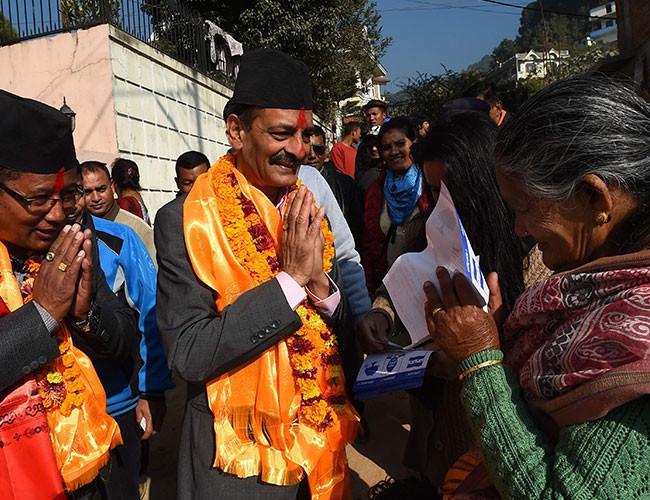Nepal to elect new parliament after years of instability
KATHMANDU – Reuters

Nepalis vote on Nov. 26 to choose a new parliament and seven state assemblies hoping to end years of fickle coalitions and complete a tumultuous transition, more than a decade after the end of a civil war.
The two-phase election is also expected to determine the path the country takes in balancing ties with China and India, both of whom are pushing hard to expand influence in the buffer state.
Prime Minister Sher Bahadur Deuba’s centrist Nepali Congress party faces a tight battle against a left alliance between the main group of Maoist former rebels and the opposition Communist UML party.
About 15.4 million eligible voters are tasked to pick a 275-member parliament - 165 through first-past-the-post and 110 through proportional representation - the first under a new constitution agreed after years of wrangling.
Simultaneously, voters will choose representatives to seven provincial assemblies for the first time after Nepal turned into a federal republic and abolished monarchy in 2008.
“These elections will _ firmly put the country on the path of stability and prosperity,” Deuba, the country’s tenth prime minister in as many years, told Reuters.
Counting of votes will begin after the second round of polling on Dec. 7 and complete results may not be known until the middle of December because of cumbersome counting procedures.
Political analysts say that the left alliance is likely to open up the country further to Chinese investments if they were to come to power in the election.
Already, the UML has said it would hand back the country’s biggest hydro-electric project to China after the Deuba-government, seen as more pro-India, cancelled the deal citing lapses in the contract.
















